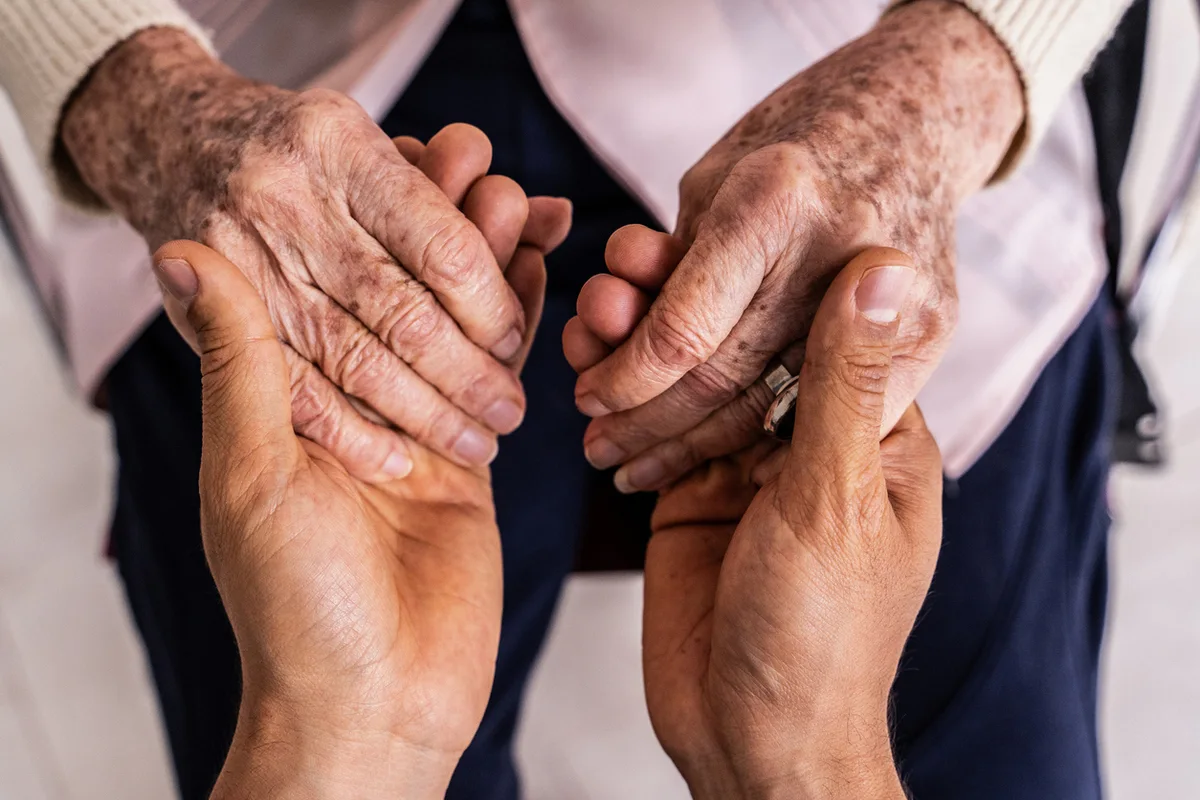
If you’re trying to figure out how to talk to aging parents about moving, and all they say is, “I’m not ready yet,” you’re not alone.
That phrase comes up a lot, and it can be frustrating. You might see clear signs they need help—missed medications, increased falls, or loneliness—and still, they dig in.
This doesn’t mean you’re handling it wrong. It just means your parents are scared—scared of what the move might mean, scared of losing their routines, or just scared of change in general.
This article is here to help you understand resistance, know what to say (and what not to), and start a conversation that leads somewhere better—for both of you.
If you haven’t yet read our post on how to talk to your parents about assisted living, it’s a good companion to this one.
Why “I’m Not Ready Yet” Is So Common
Even if your parent is struggling, they might still say they’re fine. There are a few reasons for this:
- They don’t want to lose control. The idea of needing help can feel like losing independence.
- They’re afraid of the unknown. Moving is a big change, especially after decades in the same home.
- They feel like a burden. Many older adults don’t want to “cause trouble” for their kids.
- They don’t see what you see. Memory changes, safety risks, or social isolation may not feel obvious to them.
It’s not always denial. Sometimes, it’s just fear of talking.
Lead With Empathy, Not Pressure
It’s tempting to jump into the facts. But facts alone won’t win this conversation.
Start by listening. Ask them how they feel about where they are now. Let them tell you what matters most—comfort, privacy, independence, community.
Then say something like:
“I hear you. I want to make sure you’re comfortable and happy. Can we talk about what that might look like over the next few years?”
Let them know this is a conversation—not a decision being made for them.
Signs They Might Be More Ready Than They Say
Even if they say they’re not ready, their actions might tell a different story:
- Have they stopped cooking full meals?
- Are you noticing more clutter or missed bills?
- Are they calling you more for help with everyday tasks?
- Have they withdrawn from friends or stopped going out?
These are gentle signals. Use them to guide the conversation—not to prove a point, but to show you’re paying attention.
What to Say Instead of “You Have to Move”
That line can shut things down fast. Instead, use open and supportive phrases like:
- “Can we just go look at a few places? No pressure.”
- “What would make you feel more supported day to day?”
- “Would it help if someone was there to cook and check in?”
At Park Visalia, families often start with a short visit. It is a chance for the parent to see what life might be like—with people their age, their own space, and daily help that doesn’t take over.
Help Them Focus on the Benefits—Not the Fears
Instead of making it about what they’re losing, shift the conversation to what they’ll gain.
- More social time without having to make plans or travel
- Meals they don’t have to cook or clean up
- Help with meds and bathing but on their terms
- No more worrying about stairs, falls, or managing the house
It’s not about giving up. It’s about making life easier, safer, and more enjoyable.
Involve Them in Every Step
This can’t feel like a decision that’s happening to them.
- Let them choose which communities to visit
- Invite them to ask questions directly to the staff
- Encourage them to try a meal or join an activity
At Carefield Park Visalia, we welcome visits even from seniors who say they aren’t ready yet. We’ve seen how one warm conversation and a home-cooked lunch can shift someone’s mindset.
Give It Time—But Don’t Ignore the Risks
If emotions run high, step back. It’s okay to pause and try again later.
But it may be time to push a little harder if safety is becoming a genuine concern—for example, falls, poor hygiene, or increased confusion.
In those cases, you can also bring in:
- A family doctor or geriatric specialist
- A social worker
- Another trusted family member or friend
Sometimes, hearing it from someone else makes all the difference.
Every Family Moves at a Different Pace
Some people take months to warm up. Others just need a little reassurance.
You know your parent. But also know this: waiting until a crisis makes everything more complicated.
That’s why, at Park Visalia, we often meet with families before they’re ready. So when the time does come, it’s not overwhelming; it’s familiar.
Let Readiness Look Like Comfort, Not Pressure
Getting your parents to consider a move isn’t easy, but you don’t have to rush, and you don’t have to do it alone.
Sometimes, it just starts with a simple conversation. Other times, it takes a visit to see that senior living isn’t what they pictured—it’s better.
Come visit Park Visalia, talk with the team, walk the garden paths, and stay for lunch. Bring your parent along, or come first yourself.
Let them move forward in their own time. We’re here whenever that time feels right.
FAQs: How to Talk to Aging Parents About Moving
- What should I say if my parent keeps saying, “I’m not ready”?
Ask questions, not just give answers. Try, “What are you most worried about?”
- How can I help my parent feel more in control?
Let them choose visit times, ask questions, and be part of the decision-making.
- What if my parent won’t even talk about it?
Consider a third party, like their doctor or a trusted family friend, to help start the conversation.
- What benefits should I focus on?
Comfort, safety, social life, better meals, fewer household tasks, and independence.
- Can my parent keep their routines in assisted living?
Yes. We support personal preferences and daily habits wherever possible.






